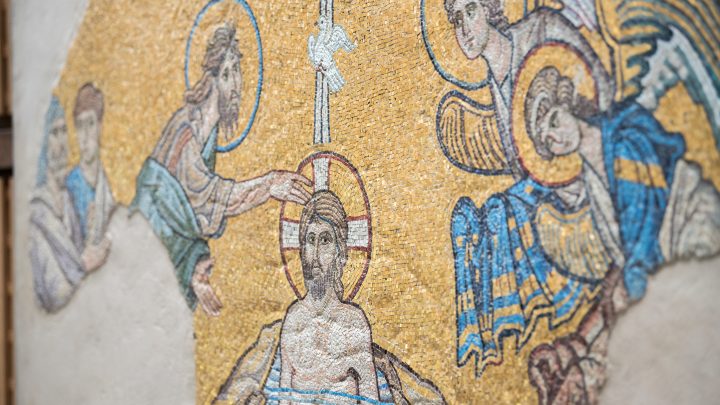An Offering from the Christian Unity and Interreligious Relationships Team
The Week of Prayer for Christian Unity takes place this year from January 18-25. The theme is “Do You Believe?” and is based on Jesus’ conversation with Martha in John 11: “I am the resurrection and the life. Those who believe in me, even though they die, will live, and everyone who lives and believes in me will never die. Do you believe this?”
The theme was chosen in recognition of the 1700th anniversary of the First Council of Nicaea (325), at which the words “I believe” were chosen to anchor the Creed as an instrument of universal Christian unity. For each day during this Week of Prayer for Christian Unity, the members of the Christian Unity and Interreligious Relationships (CUIR) committee will share a series of devotions based on the statements in the Nicene Creed.
You can sign up to receive these devotions each morning in your email or view them on our website.
Day 4: For us and for our salvation, he came down from heaven, was incarnate of the Holy Spirit and the Virgin Mary and became truly human.
The words of the wonderful Christmas hymn, “Once in Royal David’s City,” echo in my mind as I write this meditation. What does it mean to say with the hymn, “he came down to earth from heaven?” When we picture the babe in a manger, “little, weak and helpless,” it is hard for us to believe at the same time that he is “God and Lord of all.” Indeed, despite the many legends circulating in the Greek and Roman world about gods appearing in human form, the earliest generations of Christians seemed to be at great pains to show that the Messiah, the anointed one, God’s only son, had been born in a manger in Bethlehem. It took some three hundred years for the point to sink in that the Messiah, born in the flesh, was Jesus.
The son of God became incarnate or, as the gospel of John tells us, “the word became flesh and dwelt among us, full of grace and truth” (1:14). The Greek word that we translate as “dwelt” literally means to pitch a tent. The language harks back to the age of Abraham and Sarah, when Israel’s ancestors lived a nomadic life. That God should choose that same life in order to dwell among his people was an amazing thing for John and for those who put together the Nicene Creed. It should be an amazing thing for us too, that the Biblical language describes God choosing to dwell among us, not as in a palace or mansion, but as in a tent, sharing the ups and downs of ordinary life. Or, to come back to John’s words, “the word became flesh.”
God accomplished this by the work of his Holy Spirit and with the willing cooperation of Mary, who said, “my soul magnifies the Lord” (Luke 1:46). Mary’s life here reflects what every Christian’s life should be, a means of giving glory to God and lifting up God’s holy name. We do not know what special skills Mary had, or what her education may have been, if any, but we do know that she gave herself over to God’s plan for her life and gave birth to a son. “Nurtured,” as we say in the baptismal liturgy, “in the water of a womb,” he was born flesh and blood—he was incarnate.
All that is to say that God, the Word, became “truly human,” not just in flesh, but in spirit, knowing and doing all that we know and do. Jesus Christ knew the laughter of wedding celebrations. He knew the joy of having children close to him. He knew the puzzlement of his family when he chose to follow a path they found strange. He knew the pain of losing one of his closest friends to death. He knew what it was to be betrayed by another he had called a friend. He knew what it was to put his trust in God above all. All these things and more are a part of our common humanity, and all of these things Jesus knew, not at second hand, or in appearance only, but “in the flesh.” The writer of Hebrews tells us that he knew all those things so that he could offer himself for our salvation. And that is good news for us all!
Roderic L. Mullen is a member of CUIR and serves as pastor at Allensville UMC (Roxboro) and Mt. Tirzah UMC (Timberlake).
Photo by Albin Hillert, 4 October 2019, Geneva, Switzerland: Ecumenical Centre, Geneva.

